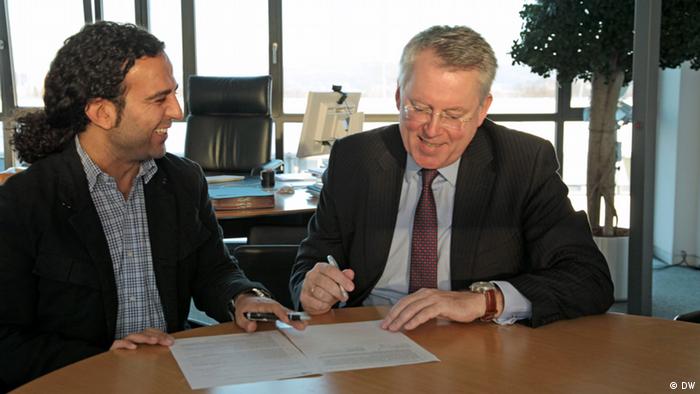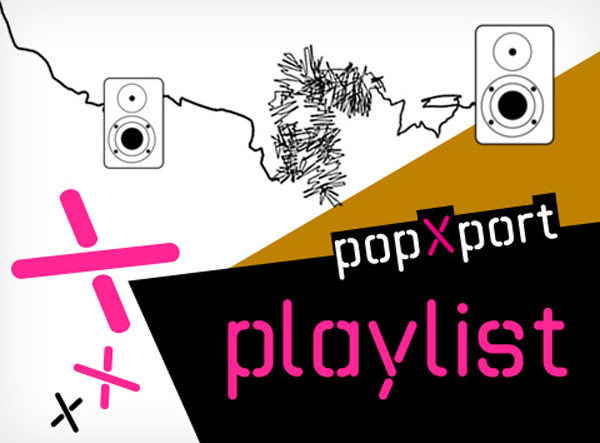Creating new perspectives with EyeEm
DW is teaming up with photo-sharing app EyeEm for an exciting new mission: Creative Living. From tents and containers to underground basements and miniature rooms – the spaces we’re living in are getting smaller and smaller, especially in big cities, and we’re getting more and more creative to make the most out of it.
We want to know how you are making due with little space! Take photos of the creative ways in which you’re living and submit them by going to eyeem.com, downloading their app for free, and tagging your pics with “Creative Living by Deutsche Welle”, they will then automaticaly be added to the mission’s album (all infos can also be found here).
The jury of Deutsche Welle will select the most creative, awe-inspiring shots and feature them on our new interactive website together with your story behind the photo.
Deadline: Wednesday, January 29th, 2014
Creative Living is the first project that #DW30, the broadcaster’s think tank that explores new forms of digital storytelling, is kicking off. And you can be a part of it from the very start! It’s your chance to get published on an international news platform and show the world the power of telling stories through your images and your eyes. We can’t wait to see the world you’re living in!
DW adds major Turkish newspaper as online partner

The cross-cultural relationship between Turkey and Germany has great economic and political significance for Europe. A new deal between DW and the leading Turkish newspaper Hürriyet will provide a new way for people in Turkey to access objective, quality news and information combined with a German perspective on world issues.
Starting in December 2013, the newspaper will be integrating DW’s quality Turkish language online content from the World news section as a prominent part of its website. Hürriyet’s World Web Coordinator Bülent Mumay and DW Director General Peter Limbourg signed the agreement during a recent meeting in Bonn.
Mumay praised DW as a leading world news organization and said the new partnership would make a valuable cultural and professional contribution to the relationship between the two countries. Over the course of 2014, the partnership will be expanded to include video sharing, co-productions and joint social media activities.
The Hürriyet newspaper was founded in 1948 and today it produces one of Europe’s leading news websites, with 2.3 million visitors per day. The paper is currently owned by the Doğan Media Group and has a news network with 52 offices and 600 reporters in Turkey and abroad. It is also a part of the Doğan News Agency. The paper is published in six Turkish cities as well as in Frankfurt. DW’s prominent place on their online platform will be sure to generate a larger and more dynamic Turkish audience for all of DW’s services. Hürriyet also provides an English language news service.
Playlists and podcasts make listening easier

PopXport is now working with Spotify to provide a playlist for the online streaming service’s 24 million users worldwide. The playlist will be updated each week according to the latest episode of PopXport, giving users an interactive mix of the latest hits, new releases and classics. In addition, the show’s hosts will also be adding songs that are currently in rotation on their personal iPods. Users can find the playlist directly on Spotify, or just go to the PopXport website in English, German and Spanish.
Also in music news, listeners can now join Kate Müser and Natalie Muller in the Pulse studio for the latest on youth culture in Germany and across Europe by subscribing to a free podcast.
Market roundup: January 2014
America
DW has a new, powerful programming partner in the United States: Univision. The most important Spanish-language media company in the USA will be including online content from DW in the future. Univision.com has more than 7 million visitors per month and is the most popular Spanish website. In addition, Univision Noticias is also the leading Spanish-language news feed, with 100,000 “regular” users and 200,000 mobile users daily. This new cooperation highlights DW’s importance among the Hispanic decision makers in the USA.
In Latin America, Multivision in Cuba has expanded its existing partnership with DW to include a total of eight DW programs.
Asia
China Education Television (CETV) will be including a selection of content from the DW Transtel catalog in its lineup for 2014. The station is responsible for supplying Chinese citizens with educational programming. CETV has selected a range of DW programming including everything from science, technology and the environment to arts and culture. The programming will be shown on television as well as two different online platforms.
Africa
DW and DW Akademie recently concluded a successful training course for journlists in Abuja, Nigeria. Select radio partners including Bauchi Radio Corporation, Freedom Radio, Radio Gotel, Royal FM and Voice of Nigeria were provided a course on “Gender sensitive reporting”.
Mobile
DW has relaunched its website for mobile users to provide users with more photo, video and audio content. In addition, the interactivity of the mobile platform has been expanded to include social media as well as automatic language recognition.
Social media is more than just being social
Guest commentary
Louise Houghton, Television Host at DW
 Facebook, Twitter, Instagram, Tumblr, Circle, LinkedIn…
Facebook, Twitter, Instagram, Tumblr, Circle, LinkedIn…
It’s hard to try and keep up with them all. Even now I am thinking that I must change my Twitter settings because I have been hacked and am sending out adverts to my 500 followers!
People say that it sometimes feels like another job making sure that everything on their social media platforms is current. Of course, everyone wants to be the first to post about the new presenter seen on DW or the opening of a new store in Berlin, for example. This is how news gets around nowadays and wouldn’t it be great if it was you who started a “Twitter trend”! There is no denying that Journal and newspapers offer a more detailed account of world events, but the likes of Twitter actually get the information out to the world much quicker. It is now possible to communicate without even using words – all you have to do is post a picture and that says it all. What an ingenious idea Instagram is! It saves me typing, but then I spend double the amount of time tweaking photos and putting them into little collages before I actually upload them.
Is it all really necessary? Are we doing it for ourselves or for our friends and followers who take an interest in what we do? We didn’t have it before, so why now the sudden interest in what dinner your friend is eating tonight? Furthermore, why is there a need to post a photo to clarify the fact that they have actually cooked it themselves?
I often wonder what we did before these sites were accessible with the touch of a button. Those precious seconds were probably spent taking life a little bit easier. We probably felt like we were able to relax before going off to sleep at night rather than thinking we need to write one last status update and say goodnight to the world.
These sites can also intrude on people’s personal lives too. Those who have millions of followers need to keep them happy by constantly posting something. But the reality is, as I mentioned above, that it is just too time consuming so they have someone else who takes charge of their social media presence for them. It is not surprising that there are stories of stalkers and burglaries as a result of these sites either because the world knows where you are or where you are not as soon as you check in on Facebook!
Saying all that, no one can deny that there are benefits to having speedy access to all this information, especially if you have a smartphone. When I am working away from home it is great to be able to keep up to date with what my friends are doing and see pictures of their birthdays, children and holidays. It makes the world feel a bit smaller and that you are still part of each other’s lives even though there is distance between you. The number of people now living away from home has, no doubt, increased since the invention of social media, Skype and Facetime.
Not only does social media help on a social front but these mediums allow people to promote themselves or their companies with minimal costs. Small businesses have the ability to promote events they are holding by posting links on feeds with followers and that is a great advantage. The Internet means that headlines get around the world faster than the speed of sound. Whether it is news on who won the latest series of “I’m a celebrity get me out of here” or the horrific pictures of a tsunami, you only need to log in to your social media sites to see the information there in front of you because everyone will be talking about it. It’s quicker and easier than a search engine. This helps to educate nations without them even realising they are being educated. I believe there were a number of people researching Nelson Mandela after he died because of following posts, blogs, tweets and captions of his quotes on social media sites. This can only be a good thing – news is more accessible through these sites and becomes more a topic of discussion rather than just a headline. Our understanding and knowledge of historical events will be stronger as a result.
Like many things in life social media has its pros and cons and I have barely scratched the surface on the many topics of conversation based around this ever-growing medium. One thing is for sure though, technology will continue to shape our world and we can’t stop it, so I think it is best to jump on the bandwagon and enjoy what these sites have to offer. Otherwise you risk getting left behind not knowing what a hashtag means! #justsaying #socialmedia









Feedback